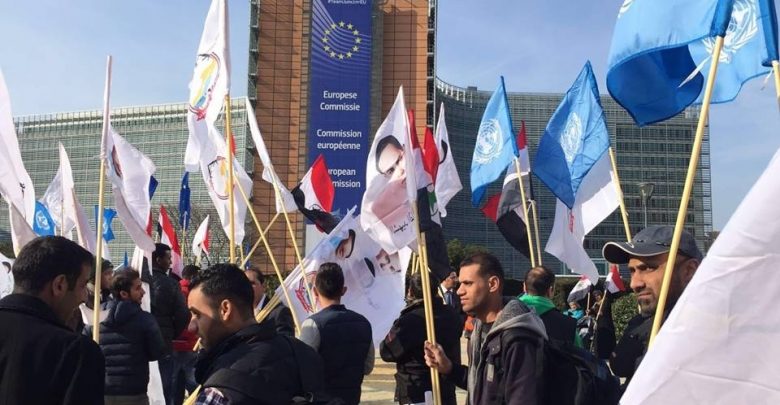Iran continues campaign of terror against Ahwazi activists

Ahwazna
The Ahwazi region has witnessed a coordinated regime campaign of mass arrests of Ahwazi activists in several cities in recent days by security forces of the Iranian occupation regime under the command of Intelligence Ministry agents.
The arrests are specifically targeting Ahwazi Arab political and cultural leaders and activists, particularly those who have converted from Shia to Sunni Islam. This is the latest of a long series of campaigns by the Iranian regime against Ahwazi Sunnis, who are targeted not only for their Arab ethnicity and language, but even for their choice of faith.
Among those arrested in the latest crackdown was Ahwazi Sunni cleric Bagher Gholami Naami was reportedly detained at his home in the by Iranian regime forces in the early hours of Sunday, March 6th on charges of following a forbidden religious creed and practices (Sunnism) and teaching a proscribed language – Arabic.
According to Ahwazi human rights activists, the security personnel stormed Mr Naami’s home at around 1:00 a.m., ransacking the house before taking him to an unknown destination, as well as confiscating books and a computer.
The arrest of the widely respected cleric appears to be connected to earlier arrests a few days previously, in which two other Sunni Ahwazi activists – named as Sami Hamidawi and Sabzi Neisi – were arrested. One of the two was subsequently released, although there are no details at present on which one.
This is not the first time that Mr. Naami has been arrested by Iranian security forces. He was previously detained in 2013 charged with the same “crimes” and sentenced to one year’s imprisonment at a trial held in Revolutionary Court Number 2 in Ahwaz City.
It should be noted that the regime frequently uses charges such as Moharebeh or ‘enmity to God’ – a vague, all-encompassing accusation – against Ahwazi Arab activists and any other campaigners for freedom and human rights in Iran, with Ahwazis also routinely charged with such ‘crimes’ as supporting separatism or teaching Arabic; all these ‘crimes’ can incur harsh sentences, including lengthy prison terms and the death penalty.
Although the majority of the Ahwazi Arab population is Shiite, a large number have converted to Sunnism in recent years, causing alarm among Iran’s hardline Shiite theocratic regime, which has instituted another brutal crackdown in response.
It need hardly be mentioned that the campaigns of arrests carried out by the Iranian authorities against Ahwazi political activists and Sunni clerics in the region are entirely illegal and unjust under international law, with the detainees reportedly subject to long terms in solitary confinement and denied access to any legal counsel before undergoing court proceedings which are in fact farcical kangaroo trials.
The regime’s recent arrest campaigns have been typically brutal in an effort to intimidate Ahwazi peoples and deter them from activism or issuing any calls for human rights, with regime security forces breaking down their targets’ doors , smashing windows and ransacking their homes, tearing apart and destroying furniture and terrorising the activists’ family members, including women and children.
In another such case, credible sources in the town of Susa in northern Ahwaz told the Ahwazi Organisation for the Defence of Human Rights (AODHR) that Iranian security forces carried out a coordinated series of raids on the family homes of Ahwazi activists in the town’s Khalaf Muslim neighbourhood in the early hours of Saturday February 20 this year, arresting six young men, the youngest aged 17, and taking them to a still unknown location, with no notification of the reason for their arrest.
The six detainees have been identified as 24-year-old Jamal Aldin Chabishat Al-Kaabi, Maher Abdullahi also aged 24, 23-year-old Hamza Dabat, 22-year-old Reyaz Chabishat, 17-year-old Asad Al-Kanani, and Daraam Kaabi, whose age was not given.
According to AODHR, the father of one of the detainees, Jamal Aldin Chabishat, named as Ali Chabishat, was executed in 2014 along with another prisoner, Yassin Mosavi, on charges of enmity to God, endangering national security and possessing anti-regime propaganda.
The UN’s Special Rapporteur on Human Rights, as well as international human rights organisations including Amnesty International, Human Rights Watch and regional human rights monitors have condemned the regime’s unfair trials in which detainees have no access to legal counsel, and its execution rate; Iran is second only to China in the rate of executions per capita globally, with over 2,500 executed since President Rouhani came to office in 2013.


